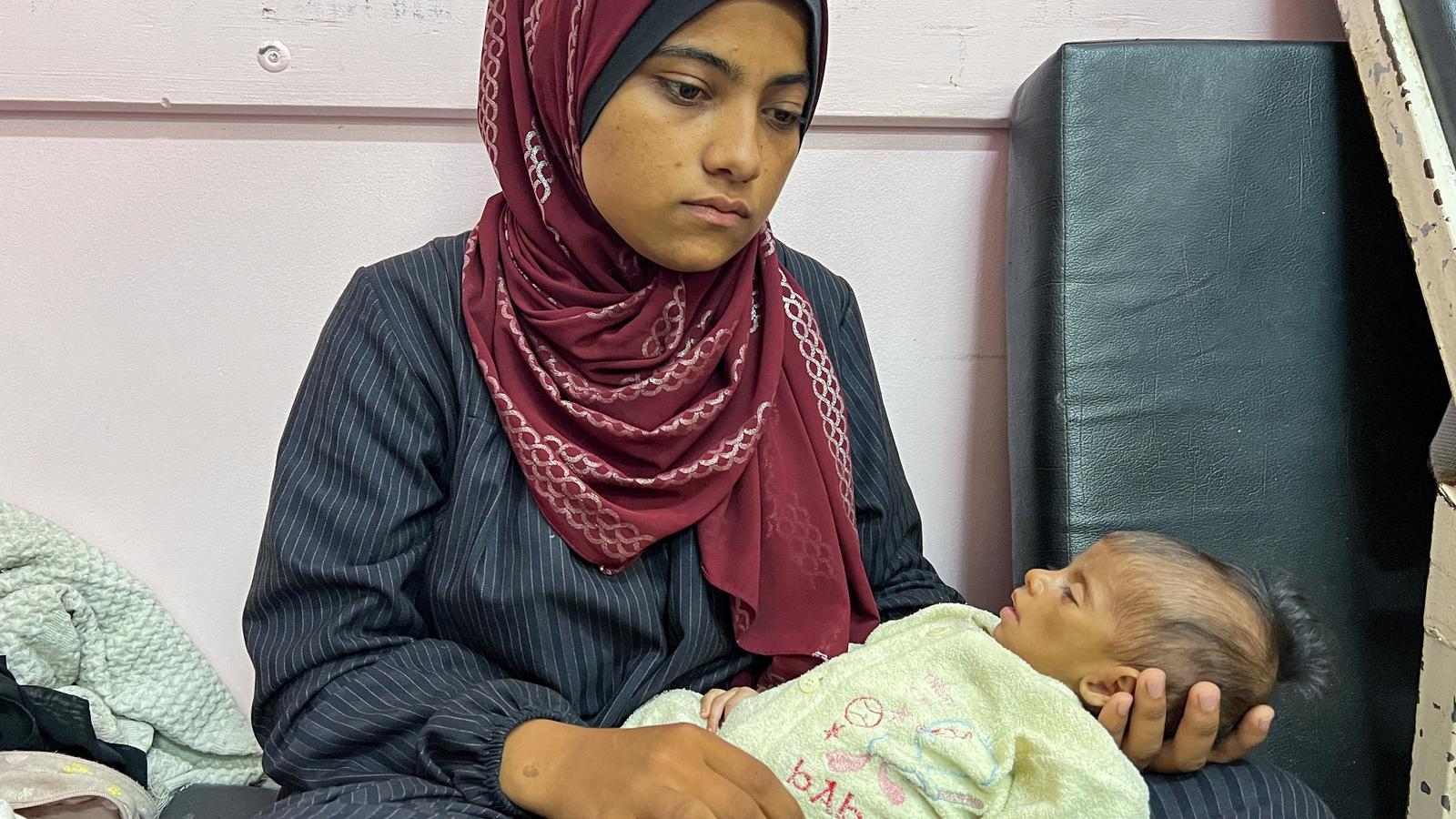Time is running out to prevent mass starvation in Gaza.
The Israeli ceasefire negotiating team returns to Tel Aviv to consult with the Netanyahu government on Hamas's response.


BarcelonaEvery day that passes the news ofhunger epidemic caused by Israel in the Gaza Strip are more distressing. In the last month, the number of people who have died of hunger in the Palestinian territory has risen to 40, and the NGO Doctors Without Borders estimates that a quarter of the children and pregnant or nursing women treated in its clinics suffer from severe malnutrition. 89 Palestinians. For all these reasons, in recent days, statements and pressure measures have multiplied on Israel to allow humanitarian aid into Gaza. the announcement of the recognition of the Palestinian state by France.
Along the same lines, the United Nations warned this Friday that supplies to treat children suffering from malnutrition are running out due to the Israeli blockade. "We are in an extreme situation; we are running out of therapeutic supplies [...]. It is very dangerous for children suffering from hunger and malnutrition," said Salim Oweis, spokesperson for UNICEF, the UN children's agency. Therapeutic supplies are high-calorie, nutrient-dense foods, such as peanut butter, which are the most appropriate for treating people in extreme hunger. Specifically, UNICEF has stated that it only has enough supplies to treat around 3,000 children, while in the first two weeks of July it treated 5,000.
Stalled negotiations
Meanwhile, once again, negotiations between Hamas and Israeli delegations on Thursday night failed to reach an agreement on a ceasefire as the first step toward ending nearly 22 months of a war that many experts consider to have escalated into genocide. Both the Israeli and US delegations withdrew from the negotiations after Tel Aviv withdrew, a decision that US envoy Steve Witkoff justified with Hamas's "lack of desire to reach a truce." The Palestinian organization denied that it had opposed the agreement. Talks are expected to resume next week after the Israeli delegation has consulted with its government on Hamas's latest proposal.
While children in Gaza have suffered from malnutrition due to the 18-year-old Israeli blockade, the problem has worsened since Tel Aviv dismantled the UN-run humanitarian aid distribution system in Gaza (GHF) in May. Under the new system, the 400 aid distribution points have been reduced to just four for more than two million people, leading to long lines and daily chaos. Furthermore, the Israeli army frequently opened fire on people forming the "hunger lines."According to the UN, over the past two months, more than 1,000 Palestinians have died trying to get food.
USAID denies Hamas steals aid
The main justification that Israel, with the support of the US, has repeatedly given for imposing the new humanitarian aid distribution system is that the previous one made it easier for Hamas to steal supplies and snatch them from the population. However, this Friday, Reuters revealed that a study by USAID, the US development cooperation agency, established that there was no evidence of systematic food theft by the Islamist militia, which controlled the Gaza Strip before the start of the war in the fall of 2023. Fletcher, a specialist in the study of the use of hunger as a weapon of war, considers the situation in Gaza to be exceptional compared to other recent cases of this phenomenon, such as in Ethiopia or Somalia. "The catastrophe in Gaza is unique because the situation could be resolved in a matter of hours if Israel so decided. An hour's drive from the affected communities, the UN and some NGOs have the resources, plans, and networks to mount a comprehensive humanitarian operation," he explained in a publication of the think tank American Carnegie Endowment.
